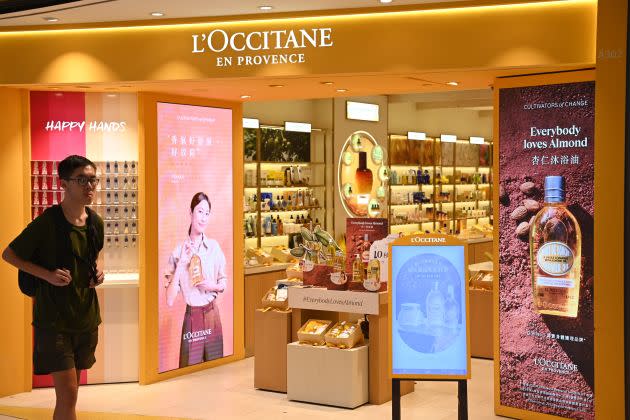L’Occitane Fiscal 2024 Earnings: Net Income Down 18.6 Percent

L’Occitane International SA, the Hong Kong-listed beauty group that is seeking to go private, reported results for the year ending March 2024 after the market close on Monday.
The company said that net sales reached 25.4 billion euros, a 19.1 percent year-over-year increase compared to fiscal 2023.
More from WWD
European Commission Fines IFF 15.9 Million Euros for Antitrust Inspection Obstruction
Target Just Released the Next TikTok-Viral Stanley Cup Inspired by Top Beauty Trends
Net income declined 18.6 percent for fiscal 2024, which amounted to 93.89 million euros.
Operating profit fell 2.5 percent year-over-year, which the company said was mainly due to increased marketing spent in key markets and channels.
“Retail sales globally grew 3 percent at constant rates, mostly contributed by the relative improvement of the retail environment in China compared to fiscal 2023,” the company noted in the financial report.
L’Occitane attributed sales growth to the strong performance of the Sol de Janeiro brand and sustained growth from its core L’Occitane en Provence label, which recorded “double-digit growth” in the Chinese market.
Sol de Janeiro, known for its fragrance mists and body products, delivered 167 percent growth for the period and has become the company’s second-largest brand and largest contributor to its profitability, with an operating margin of 23.6 percent, according to the company.
Sales at Elemis, the British skin care brand, were flat due to noticeable sales declines in the U.S. and the U.K. markets in the fourth quarter. “[It was] a result that was in line with management’s expectations as part of the premiumization strategy,” said the company. However, the brand found double-digit growth in China by embracing influencer livestreaming on Douyin, the Chinese version of TikTok.
“Looking ahead, we remain cautiously optimistic about our performance in financial 2025,” said Laurent Marteau, executive director and chief executive officer of L’Occitane, who assumed the role in April.
“However, the company’s additional investments in marketing, IT and supply infrastructure and people and planet investments will continue to weigh on our profit margins in the months and years ahead. These investments remain necessary for each of our brands to grow as competition in the global skin care and cosmetics industry intensifies,” he added.
Due to uncertain market climates, L’Occitane has been mulling a buyout deal for the past year but to no avail. Most recently, the company chairman and its billionaire owner Reinold Geiger offered minority shareholders an alternative takeover deal.
Geiger, who owns around 72.4 percent of the beauty group, offered shareholders a choice between $4.35 per share in cash and a scrip alternative, which would allow shareholders to receive 10 shares in the new private entity for every share held.
Best of WWD

 Yahoo Finance
Yahoo Finance 